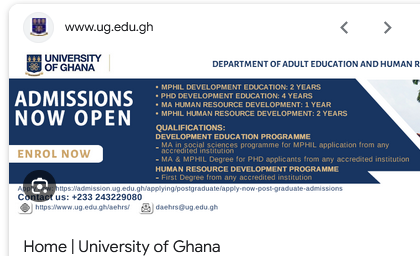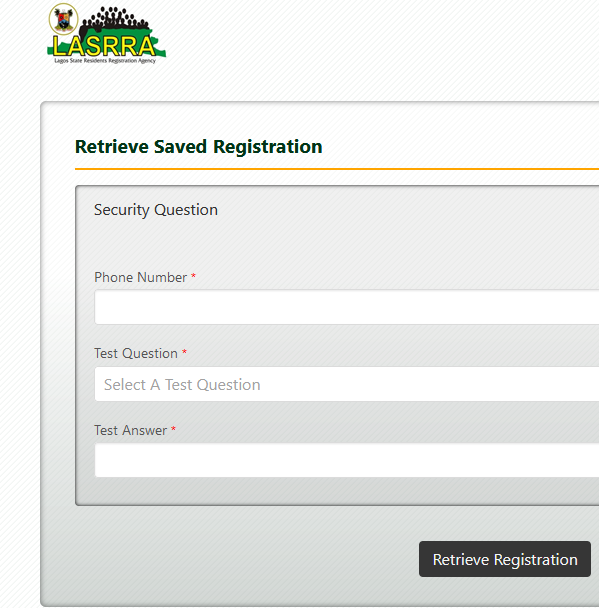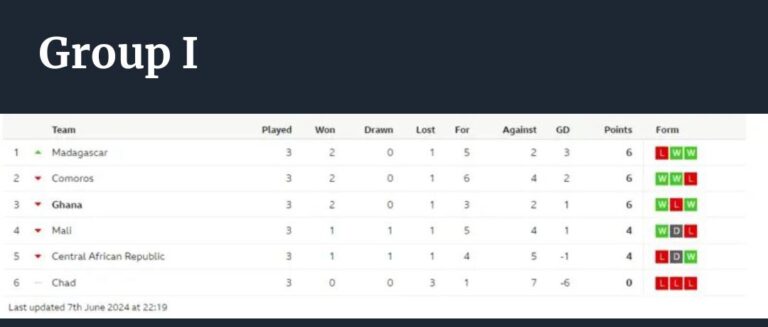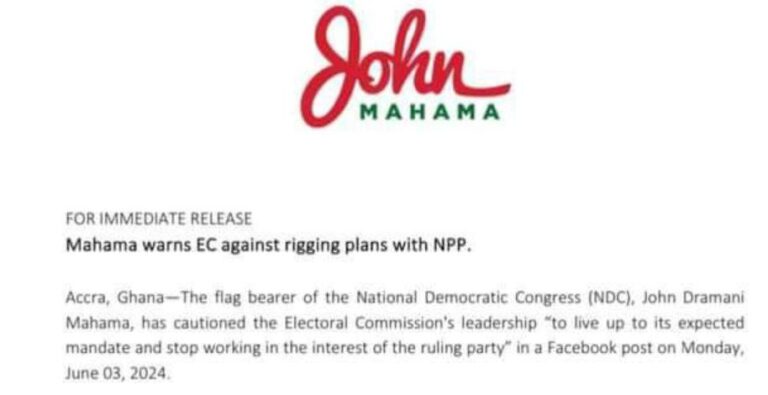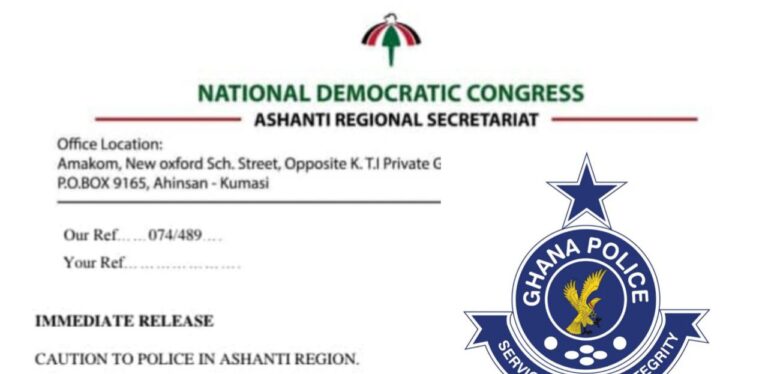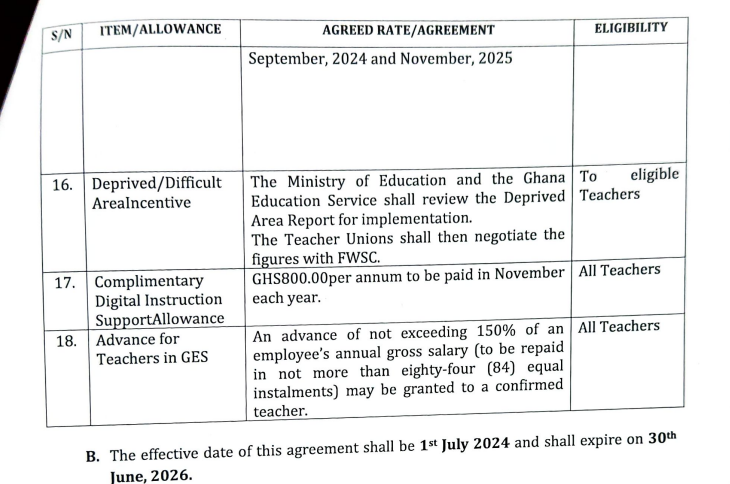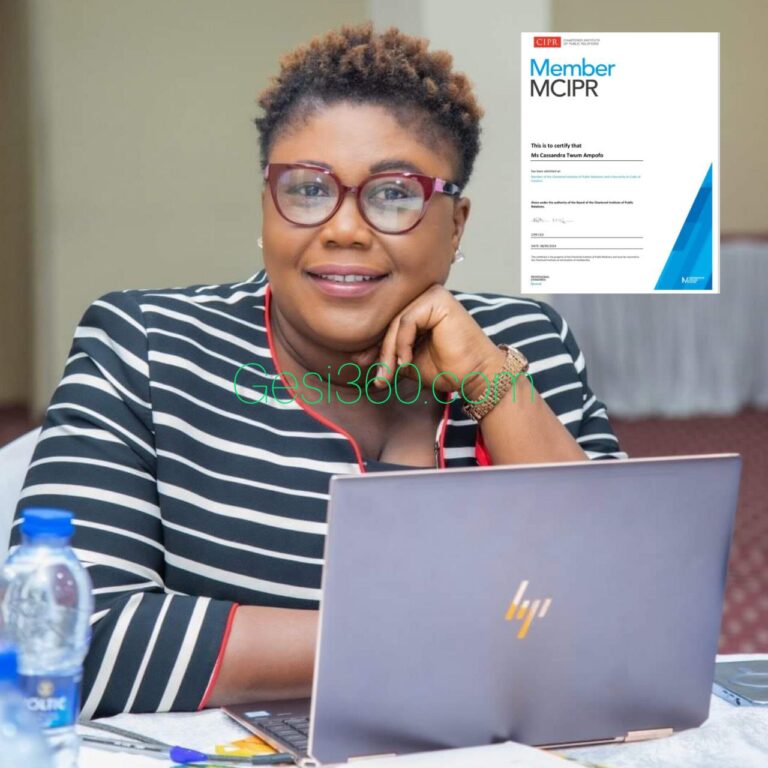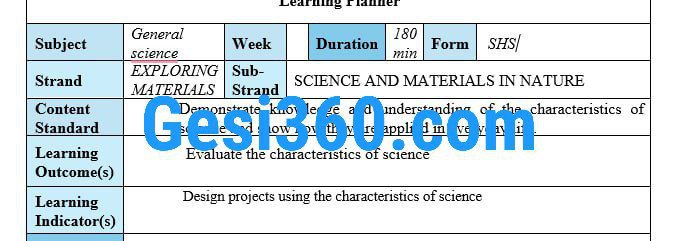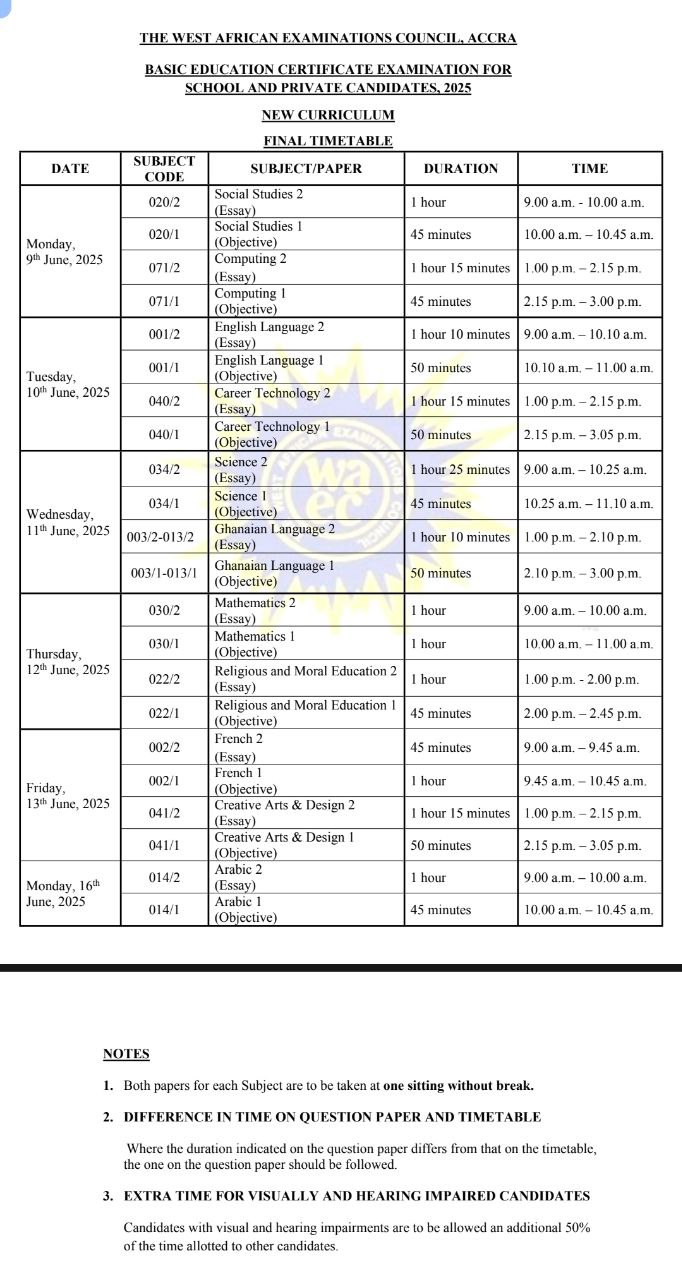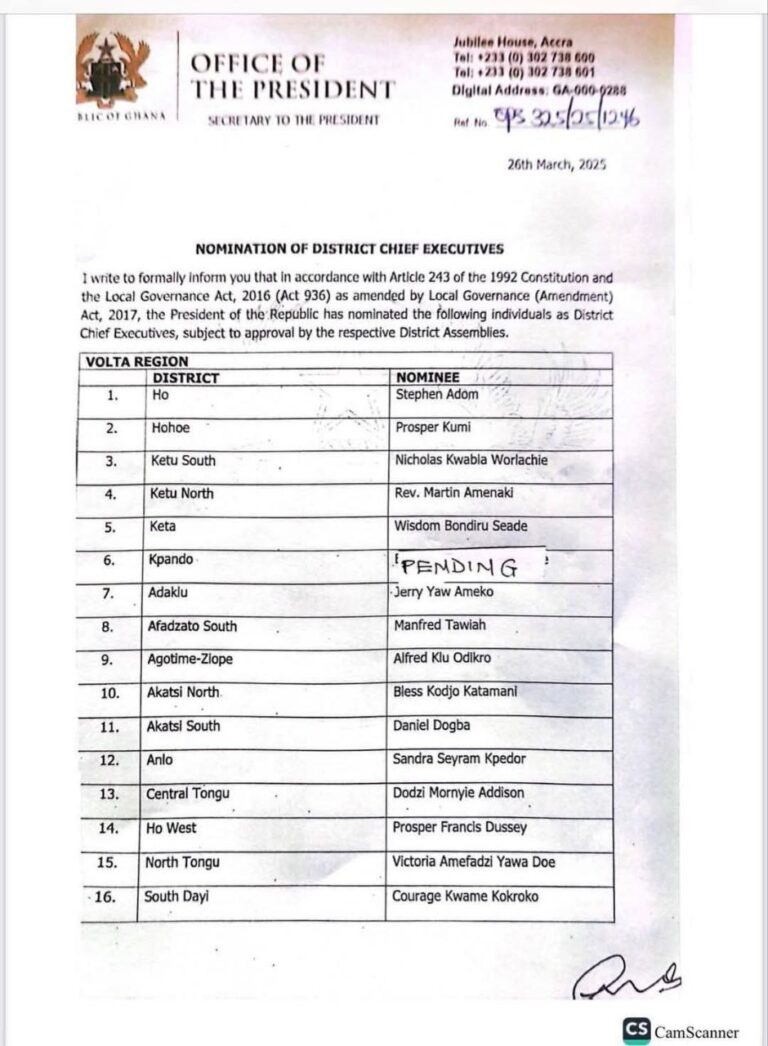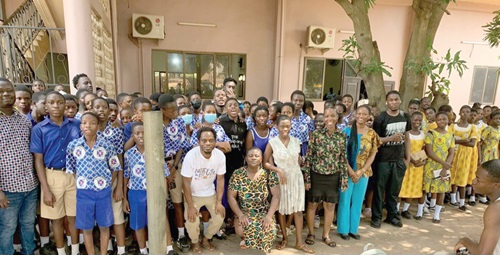Can I Go to University with Some D7, E8, and F9 in My WASSCE Results? If you...
Uncategorized
How to Check Your LASRRA Number Online Here is how to check Your LASRRA number online ;...
Group standings, fixtures of 2026 World Cup qualifiers for Africa, and Dates for CAF Matches Check below...
The Electoral Commission’s decision not to allow agents of political parties to observe the ongoing voter transfer...
The Ashanti Regional Chairman of the National Democratic Congress (NDC) is issuing a caution to the Ghana...
End of Teachers Negotiations ; Final Updates and Allowances For Teachers from 2024 to 2026 NEGOTIATION AGREEMENT...
Revised Public Sector Workers Category 2 & 3 Allowance Get the latest on public sector salary...
GES PR Boss Casandra Twum Ampofo Joins Elite Ranks as MCIPR Member Casandra Twum Ampofo, the...
Here is the Download Art and Design Foundation Teacher Manual (Year 1) For SHS/SHTS/STEM Book 1 This...
Download SHS/SHTS/STEM Learning Planner Week 3 and 4 General Science It is called Learning Planner when you...

